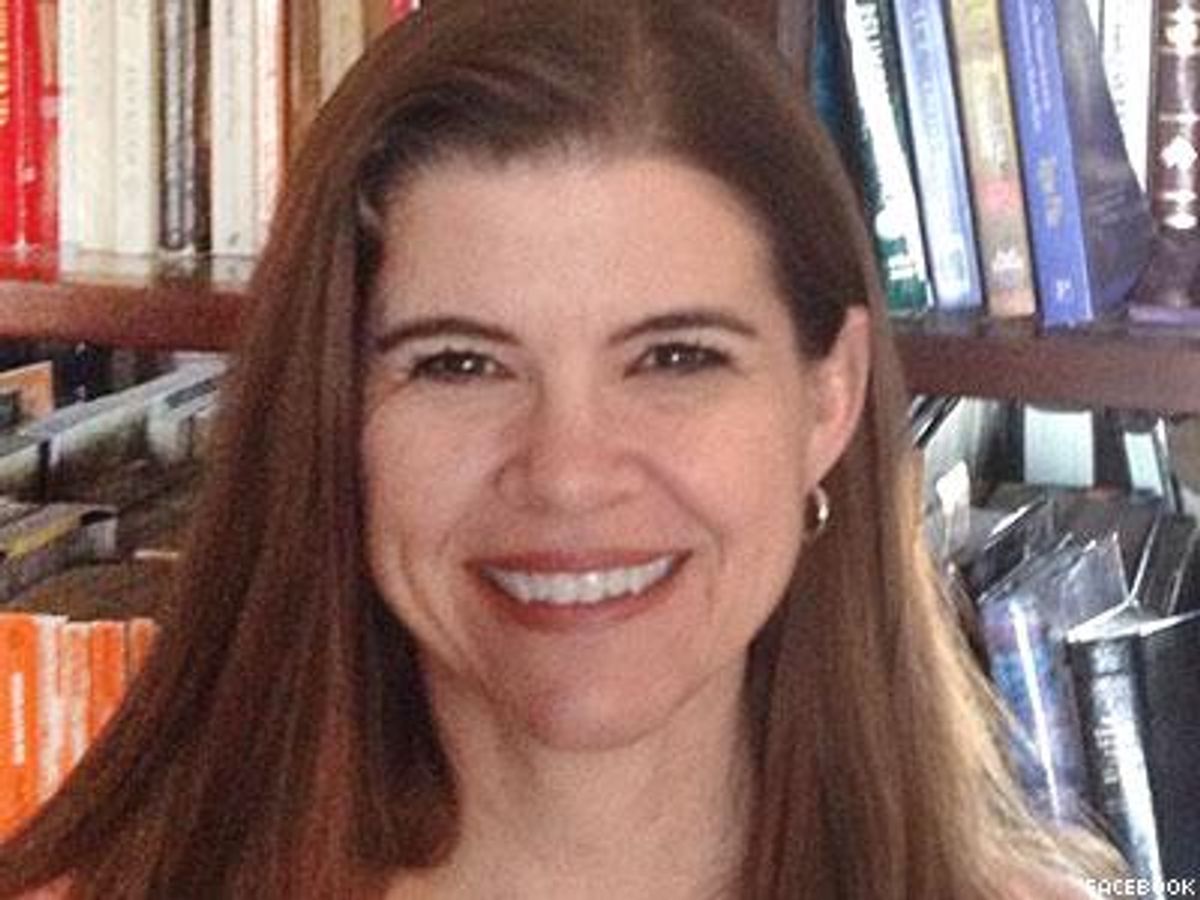For nearly 15 years, Yvette Cantu Schneider was one of the right-wing religious movement's most prominent examples of so-called living proof that "homosexual urges" could be overcome, to live a straight and "godly" life.
But like several of her contemporaries -- talking heads and iconic "examples" in the so-called ex-gay movement -- Schneider has now distanced herself from the movement, and is questioning the validity of efforts to change sexual orientation in an exclusive series of conversations with GLAAD's special projects consultant Jeremy Hooper.
While she declines to label her sexual orientation, the married mother says she is attracted to "intense emotional connections," and could "of course" have fallen in love with a woman. She details this evolution and more in her new book, Never Not Broken, the proceeds from which Schneider is donating 10 percent to GLAAD.
"Before I became a Christian, I was open and proud about my sexuality," Schneider told Hooper, recounting how she refused her mother's request to remove the ring she and her then-partner wore when her sister brought home a boyfriend, and even volunteered for GLAAD in the early 1990s. "But once I became a Christian and was told that my sexuality was deviant and sinful, I felt ashamed about it."
After being in a series of same-sex relationships following her coming out at age 21, Schneider says she found her way into the Christian church in late '90s, where she was taught that being LGBT was an abomination in the eyes of God. In an effort to attain spiritual purity, Schneider says she bought into the belief that she could "overcome" her same-sex attractions through faith in Jesus.
Schneider spent more than a decade working for major players in the antigay and ex-gay movement, including as policy expert for the antigay Family Research Council, as a board member for the now-defunct "ex-gay" organization Exodus International, and as a consultant with the antigay group Concerned Women for America. In a lengthy Q&A, Hooper also notes that Schneider even worked with Focus on the Family, and was involved in the religious-based efforts to pass California's Proposition 8.
But despite her ex-gay pedigree, Schneider tells Hooper her heart wasn't in the rhetoric she dutifully parroted whenever she was asked to speak about the efficacy of attempts to leave the so-called gay lifestyle.
"Near the end, especially with Prop. 8, I felt that I was stripped of my individuality," Schneider says. "If it hadn't been me at an event, it would have been someone else. When a speaking engagement conflicted with my schedule, someone else was found to be the 'ex-gay' voice. There was nothing I could add or contribute that was different from what anyone else could contribute."
And about that supposed "change?" Schneider is blunt with Hooper, saying even when she was part of the movement, she refused to date a man who identified as "ex-gay."
"Many people I knew suspected all along that change-- true change where all same-sex attractions disappear or become rare and incidental, and heterosexual attractions take their place -- never happened," she explained. "I can say I've never met an 'ex-gay' man I thought was not still attracted to men, and would not go back to gay relationships under the right circumstances. One of my colleagues tried to fix me up with an 'ex-gay' man when I was still single. I said, 'No way. I have no interest in dating an ex-gay man. I don't trust that they're actually ex-gay.' "
Finally, Schneider offers a hearty endorsement of legislative efforts to ban the scientifically discredited practice known as sexual orientation change therapy or "reparative therapy." Laws banning such practices by licensed therapists on minors have passed and subsequently been upheld by federal courts in California and New Jersey. And Schneider says she wants to see laws like those take hold nationwide.
"These types of bans need to progress throughout the nation as quickly as possible," she told Hooper. "Not only is the efficacy of change therapy dubious at best, but the type of therapy this legislation bans is specifically for minors. It's damaging to take a child who is questioning his or her sexuality, or who may display qualities that are not in line with what our society considers normative for their gender, and communicate to the child (and parents) that there is something wrong with him, that in some way he or she is deficient."
Read the full, in-depth interview with Schneider at GLAAD's blog.



















































































Viral post saying Republicans 'have two daddies now' has MAGA hot and bothered